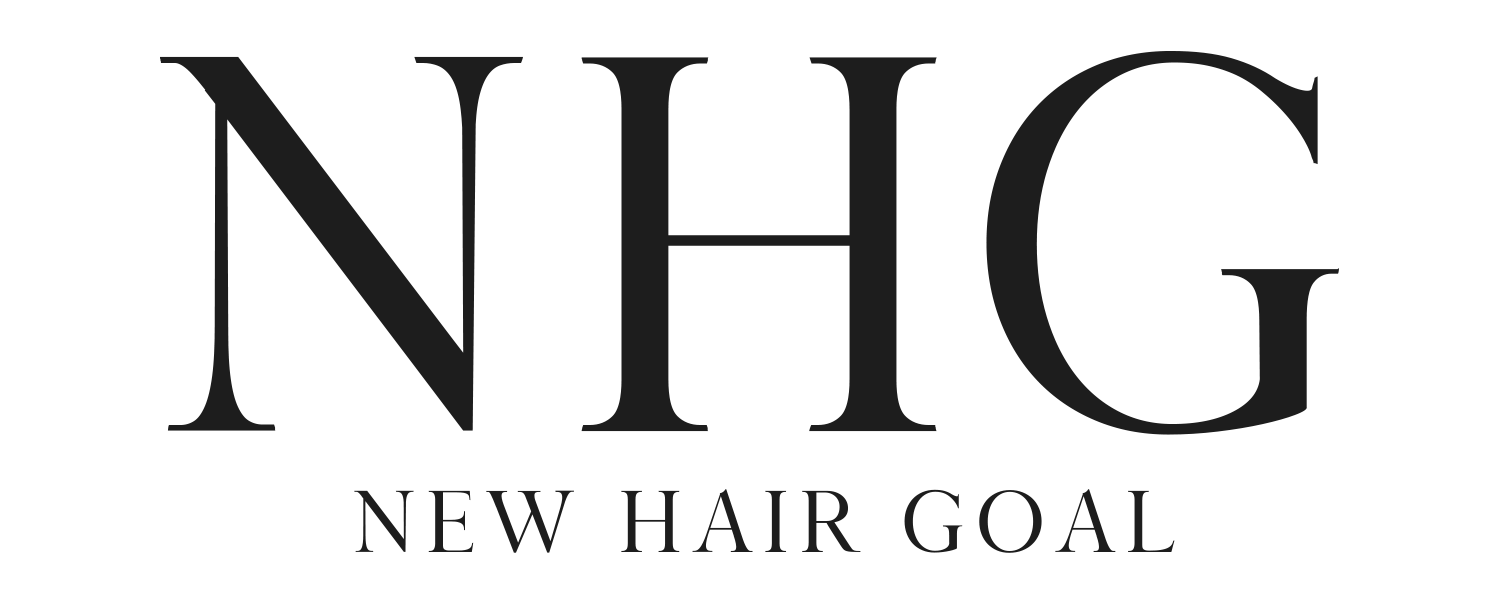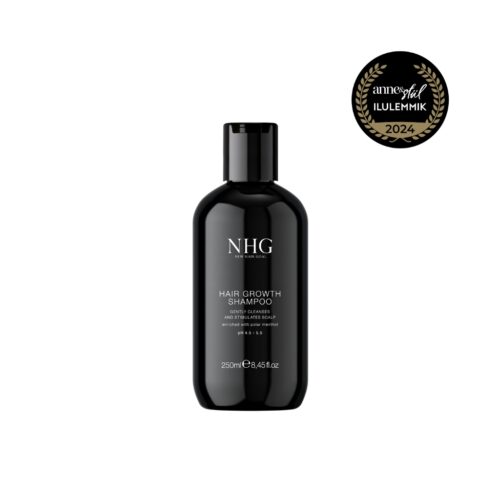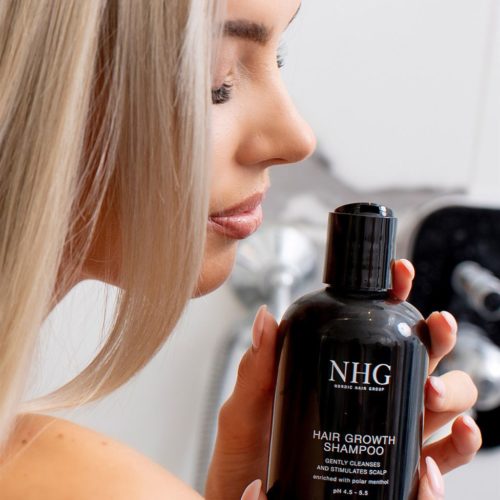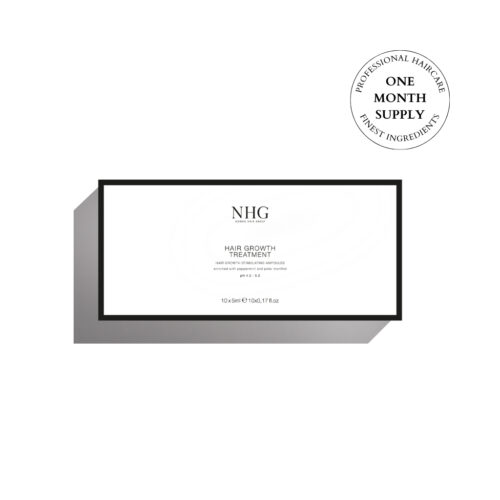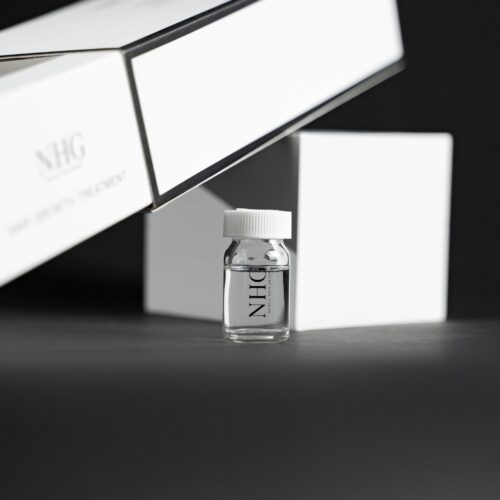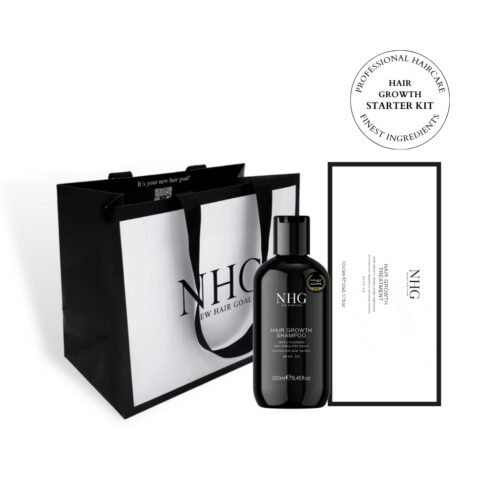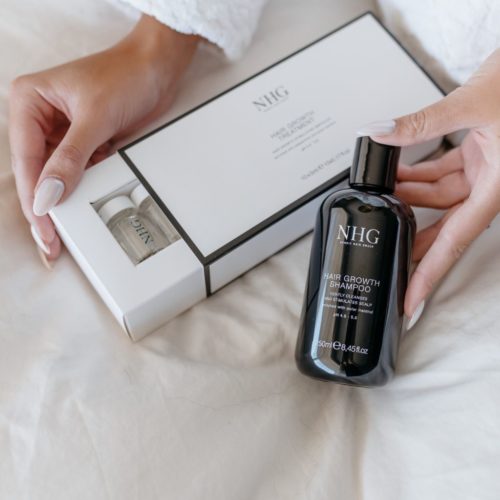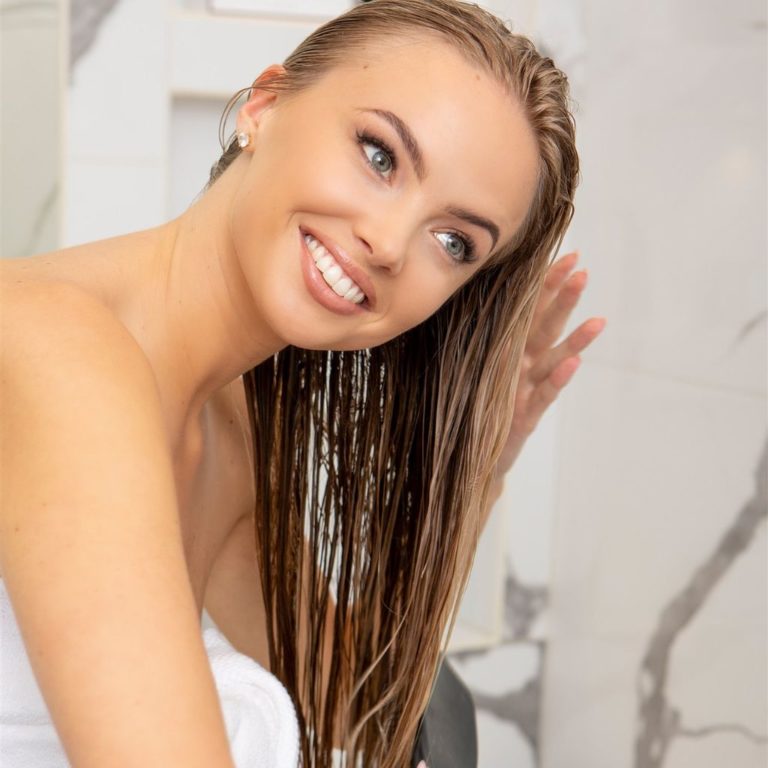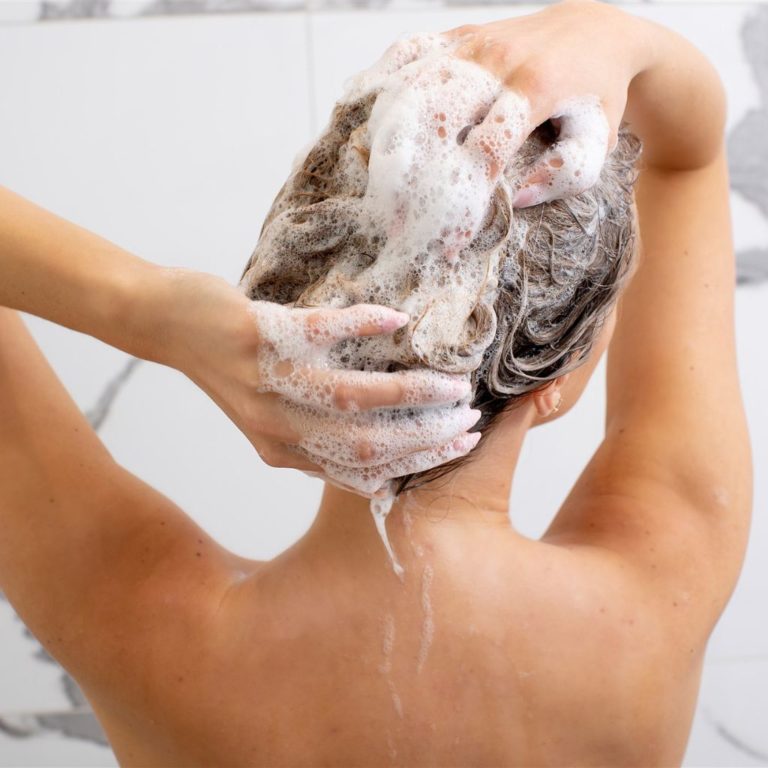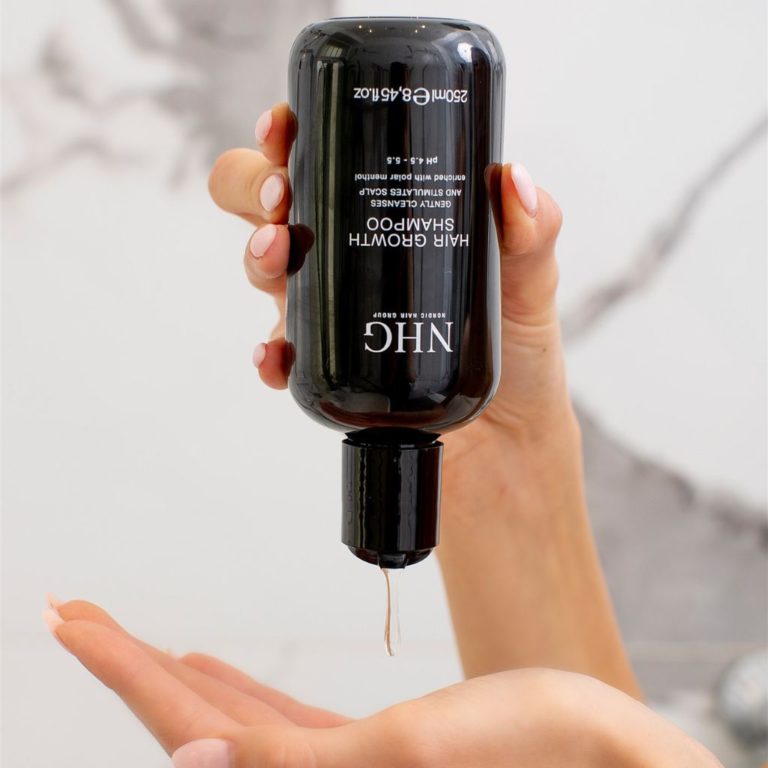6 ways to improve your hair growth + PRO tips
THROUGHOUT HISTORY, people have cared about their appearance and sought ways to personalise their looks or gain social approval.
When you are confident in your hair, you can feel ready to take on whatever the world can throw at you!
New research has found a real link between your confidence in yourself and how you feel about your hair.
Studies have specifically identified the feelings of loss of self-confidence, low self-esteem and heightened self-consciousness in people affected by hair loss.
So what can you do to improve your hair growth?
- Do not forget to rest and sleep well
Lack of sleep can lead to stress, which is known to impact hair growth. Stress can cause the body to produce hormones like cortisol, which can affect the hair growth cycle and lead to hair loss. Additionally, poor sleep can lead to a weakened immune system, which can also impact hair health.
- Find best hair care product for your scalp and hair
When selecting hair care products, look for ones packed with nutrients proven to make your hair stronger and grow faster. We recommend trying NHG hair growth shampoo enriched with polar menthol and to boost hair follicle growth use NHG leave in hair growth treatment ampoules on your scalp.
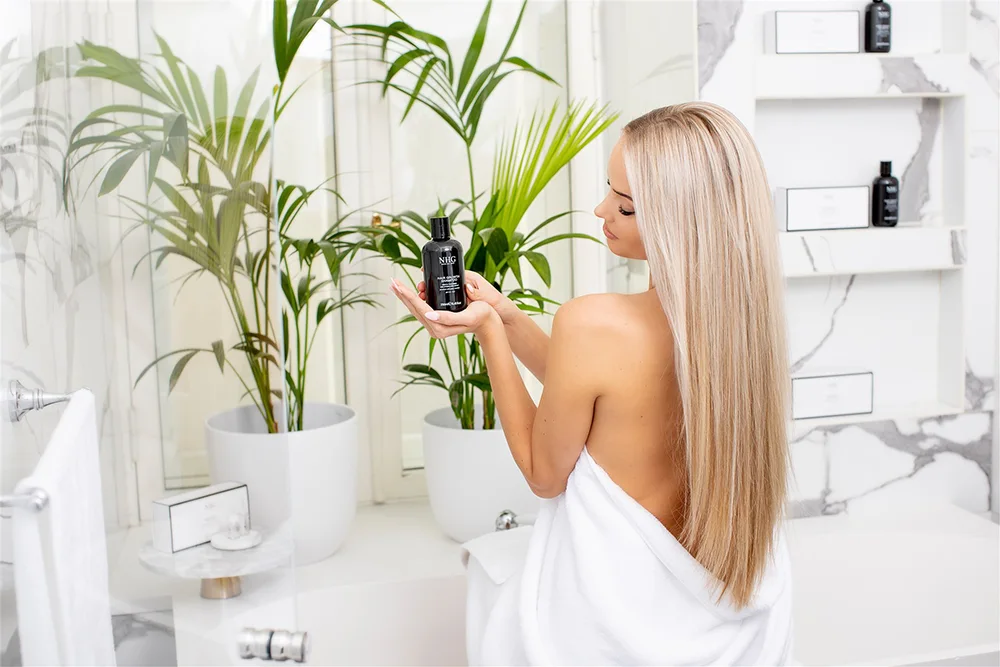
- Healthy diet
A healthy diet plays an important role in maintaining healthy hair. Here are some nutrients that are particularly important for healthy hair:
- Protein: Hair is made up of protein, so it is important to consume enough protein in your diet. Good sources of protein include lean meats, fish, poultry, beans, and lentils.
- Iron: Iron is necessary for healthy hair growth, as it helps carry oxygen to the hair follicles. Iron-rich foods include red meat, chicken, fish, leafy green vegetables, and fortified cereals.
- Omega-3 fatty acids: Omega-3 fatty acids are essential for maintaining healthy hair and scalp. Good sources of omega-3s include fatty fish, flaxseeds, chia seeds, and walnuts.
- Vitamin D: Vitamin D is important for hair follicle cycling, which can impact hair growth. Good sources of vitamin D include fortified dairy products, mushrooms, and fatty fish.
- B vitamins: B vitamins are important for healthy hair growth and can be found in whole grains, leafy green vegetables, and eggs.
- Stay hydrated
It is important to stay hydrated and limit your intake of processed foods and sugary drinks to promote healthy hair.
- BE ACTIVE AND EXERCISE
An active lifestyle can have a positive impact on hair growth.
Here are some ways in which an active lifestyle can promote healthy hair growth:
- Increased blood flow: Physical activity increases blood flow to the scalp, which can help to deliver essential nutrients and oxygen to the hair follicles. This can promote healthy hair growth and improve the overall health of the scalp.
- Reduced stress: Regular exercise can help to reduce stress levels, which can be a contributing factor to hair loss and hair thinning. Lower stress levels can help to promote a healthy scalp and healthy hair growth.
- Improved circulation: Exercise can help to improve circulation throughout the body, including the scalp. This can help to stimulate hair growth and improve the overall health of the hair.
- Healthy diet: An active lifestyle is often accompanied by a healthy diet, which can provide the necessary nutrients for healthy hair growth. A diet rich in protein, vitamins, and minerals can help to promote healthy hair growth.
- Hydration: Regular exercise can lead to increased sweating, which can lead to dehydration. It’s important to drink plenty of water to stay hydrated, as dehydration can lead to dry, brittle hair that is more prone to breakage.
- Take care of your scalp
A clean scalp is essential for healthy hair growth.Managing stress and addressing any underlying scalp conditions can also help improve scalp and hair health.
PRO TIPS FOR YOUR SCALP
- Wet your hair and scalp thoroughly before applying shampoo. This helps to distribute the shampoo evenly and create a lather.
- Massage the shampoo into your scalp using your fingertips, not your nails. Gently massage in circular motions for about a minute to help stimulate blood flow to the scalp.
- Rinse your hair and scalp thoroughly after shampoo with warm water. Make sure all the shampoo is removed to prevent buildup.
- Finish rinsing your hair and scalp after conditioner thoroughly with cool water to help seal the cuticle and prevent moisture loss.
- Use a scalp scrub or exfoliator once a week to remove any buildup or dead skin cells
- Protect your scalp from the sun.Just like your skin, your scalp can get sunburned. Wear a hat or use a scalp sunscreen if you plan to be out in the sun for an extended period.
- TAKE REGULAR BREAKS BETWEEN THERMAL STYLING TOOLS.
Excessive heat can cause the hair to become dry, brittle and prone to breakage. Here are some tips to help prevent damage when using thermal styling tools
- Use a heat protectant-This can help to minimise damage by forming a protective barrier around the hair.
- Use the right temperature – Different hair types require different heat settings. If you have fine or thin hair, use a lower heat setting, while thicker or coarser hair may require a higher heat setting. Avoid using the highest heat setting, as this can cause the most damage.
- Don’t use hot tools on damp hair-Make sure your hair is completely dry before using any hot styling tools. Damp hair is more fragile and prone to breakage, and using hot tools on damp hair can cause even more damage.
- Limit use- Try to limit the use of hot styling tools to once or twice a week, if possible.
- Take breaks- Allow your hair to cool down between each pass of the hot styling tool. This will help to minimise damage and reduce the risk of breakage.
By leading an active lifestyle and taking care of your body through exercise, proper nutrition, hydration, enough sleep and rest, also by using quality hair products to support your hair growth you can promote healthy hair growth and improve the overall health of your scalp and hair.
(Williamson D, Gonzalez M, Finlay AY. The effect of hair loss on quality of life. J Eur Acad Dermatol Venereol. 2001 Mar;15(2):137-9. doi: 10.1046/j.1468-3083.2001.00229.x. PMID: 11495520.)
https://pubmed.ncbi.nlm.nih.gov/11495520/
